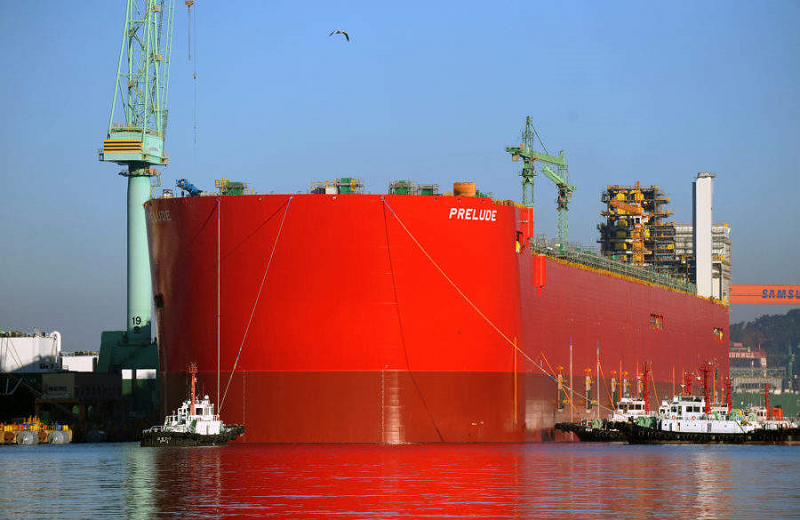
Past predictions
In 2011, the International Energy Agency (IEA) published a report entitled Are we entering a golden age of gas? exploring the potential of liquefied natural gas (LNG) as a cleaner replacement to other fossil fuels in global energy infrastructures.
The report suggested that LNG’s vast resource base and availability meant it could play a greater role in the global energy mix. It predicted that ambitious gas use policies, increased use of gas in road transport and a decrease in nuclear power growth would provide the perfect conditions for the natural gas industry to thrive.
“Global uncertainties afflicting the energy sector can be seen as opportunities for natural gas,” the report said. “When replacing other fossil-fuels, natural gas can lead to lower emissions of greenhouse gases and local pollutants.
“It can help to diversify energy supply, and so improve energy security. It can provide the flexibility and back-up capacity needed as more variable capacity comes on-line in power generation.
“Gas is a particularly attractive fuel for regions, such as China, India and the Middle East, which are urbanising and seeking to satisfy rapid growth in energy demand.”
A 2012 report, Golden Rules for a Golden Age of Gas, predicted that this “golden age of LNG” would be reached by 2035. It also predicted that production of unconventional sources of gas, in particular shale produced by fracking, would triple by 2035.
LNG in the present
Despite these lofty predictions, in 2019 LNG seems to be falling short of the promised golden age.
One important factor unforeseen by these reports is the development of renewables, which have advanced at a faster rate than many thought possible.
At the Bloomberg New Energy Finance (BNEF) New Energy Outlook in June 2019, BNEF head of energy economics Elena Giannakopoulou said: “Coal is out of the leagues, while gas will see its shares shrinking over time.”
@ElenaGiannakop outlines the UK’s energy future by 2050. Wind power will dominate whilst gas and coal declines. #BNEFNEO #BNEF pic.twitter.com/6Rcand2fwE
— Future Power Tech (@Power_OnlineMag) June 26, 2019
While the predictions in 2011 and 2012 poised natural gas as a potential replacement for fossil fuels such as oil and gas, more recent projections see renewable technologies such as solar and wind energy supplanting them in the future.
Another factor is that the essential component to the predicted ‘golden age’, production of unconventional sources of gas, has been unable to provide the expected quantities of LNG due to controversies associated with the environmental damage caused by fracking.
Instead, currently hydrogen is poised to be an effective low-carbon alternative to oil and gas, with gas infrastructures expecting the gas to support transitions to renewable energy.
@NGNgas’ Keith Owen outlining the potential of hydrogen at #WEETFEvents pic.twitter.com/vlUpndOq5j
— Future Power Tech (@Power_OnlineMag) July 16, 2019
Is there a future for LNG?
While the ‘golden age’ foreseen in 2011 may not come to pass, LNG will still play an important part in the global energy mix as well as efforts to transition to low-emission energy production.
At a Westminster Energy, Environment and Transport Forum (WEETF) policy conference held in July 2019, Gas Security Group chair Clive Moffatt emphasised the importance of gas for the energy transition and urged the government to work to reduce the risk of gas shortages, suggesting that the UK import LNG “just as we need to import food.”
National Grid head of engineering Antony Green also highlighted the importance of LNG at the WEETF conference, stating that it would play a “significant role” in the UK’s net-zero carbon goals.
@nationalgriduk’s Antony Green observed that gas will be an essential part of the UK’s net-zero carbon goals #WEETFEvents pic.twitter.com/U0IAss5j64
— Future Power Tech (@Power_OnlineMag) July 16, 2019
Initiatives such as Project Cavendish, a collaboration between Cadent and the National Grid that aims to use existing infrastructures to supply gas to London from operations in the Isle of Grain, are also expected to make considerable use of LNG to pave the way for renewable technologies within the energy sector.
Oil and gas companies are also investing in a number of large-scale offshore LNG projects alongside existing offshore assets.
In June 2019 Shell shipped its first LNG from the Prelude floating LNG (FLNG) platform, the largest FLNG facility and the largest offshore facility ever constructed.
Anadarko is also investing in the first onshore development in Mozambique as part of its Area 1 LNG project, part of a number of investments expected to make Mozambique into one of the world’s top 10 LNG producers by the mid-2020s.



